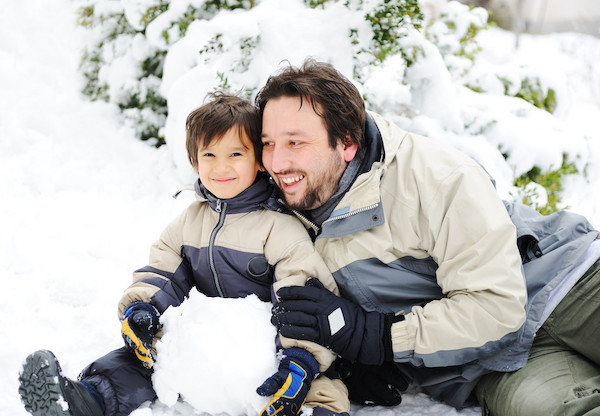
When you're a homeowner, you obviously want to do everything possible to protect both your property and your loved ones. According to the U.S. Census Bureau, the average American household spends $2,375 on property taxes alone each year. But paying your taxes or even budgeting for regular maintenance may not be enough to protect your house and your family this winter. As you prepare to stay home more frequently this winter, it's worth taking a closer look at how you can decrease risks around the house. Here are just some of the seasonal safety tips you should keep in mind.
Address Slippery Walkways
Over 20,000 workplace slip-and-fall injuries were reported to OSHA in California during 2015, but these kinds of incidents are even more likely in places prone to snow and ice. At home, you can prevent the risk of falling on slippery or snowy walkways and driveways by staying diligent in your shoveling and de-icing efforts. Rock salt or even sand can be used to address slippery surfaces, while ice melt products can be used to clear away the problem altogether. Snow can also be slippery in many cases, so you may need to prioritize shoveling or snow blowing on a regular basis. Of course, remember to take frequent breaks, wear adequate layers, and know your body's limits while shoveling to prevent injuries.
Keep Snow and Salt Outside
When coming in for the cold, it's easy to bring in the elements. Unfortunately, this can make for wet and slippery floors. When cleaning, you'll want to save your floors for last to avoid having to clean them twice -- and to preserve those pristine floors, you'll want to take some preventative measures. Placing a doormat on both sides of the door can encourage family members and visitors to wipe their feet thoroughly before they track water and mud indoors. You may also want to encourage everyone to remove their shoes and to establish a boot rack or mat specifically for those boots covered in snow and salt. It may also be a good idea to establish a wintertime entrance for your home; even if you ordinarily welcome guests from any entry, you may want to come in through the garage or mudroom in the winter to minimize mess. Not only can this make your cleaning sessions a lot easier to handle, but it'll lessen the chance that anyone will slip and fall due to tracked-in puddles.
Amplify Fire Detection and Prevention
Slips and falls aren't the only safety risks during winter, of course. Fire hazards abound during this time of year. Be sure to check your smoke and CO2 detectors to ensure they're working properly on a monthly basis. You'll also want to heat your home properly. While space heaters can be effective in draftier rooms, they're inherently more dangerous than central heating units. Never leave a space heater unattended and opt to use models that are up-to-date and come with safety features like automatic shut-off. While you're at it, change out the filter in your HVAC system to help your heater work more efficiently and to eliminate a possible fire hazard. And if your home has a working chimney and fireplace, have it cleaned every year or so to eliminate buildup.
Prepare For Power Outages
Downed trees and powerlines can cause outages that can last for hours or even days. Before a winter storm hits, be sure you're prepared in the event of an outage. If you have and plan to use a generator, make sure it's located at least 20 feet away from windows, doors, and vents. Generators should never be used indoors! Regardless of whether you plan to use a generator during an outage, you should have an emergency kit ready to go with flashlights, first aid supplies, non-perishable food items, water, a battery-powered radio, a powerbank phone charger, and a supply of any essential medications. Be sure to stock up on battery-powered candles, as well (rather than relying on traditional candles, which can be a fire hazard) and fresh batteries. You should also establish an emergency plan if you need to leave your home due to an extended outage or if you have any family members who will require medical assistance.
Protecting the people and the home you love will probably be a high priority on your list during any time of year. While there are many hazards that are prevalent during the wintertime, these tips can allow you to prepare and to prevent accidents and injuries at home.


























